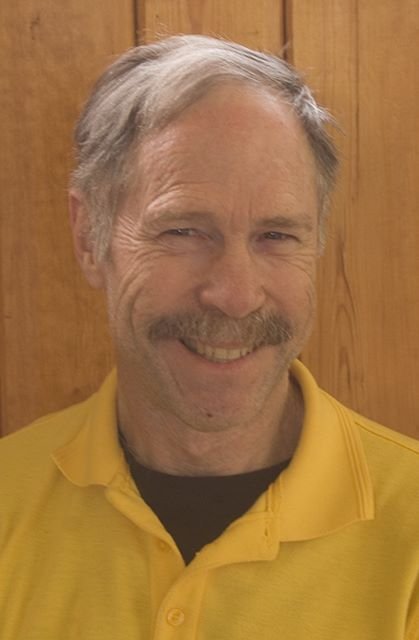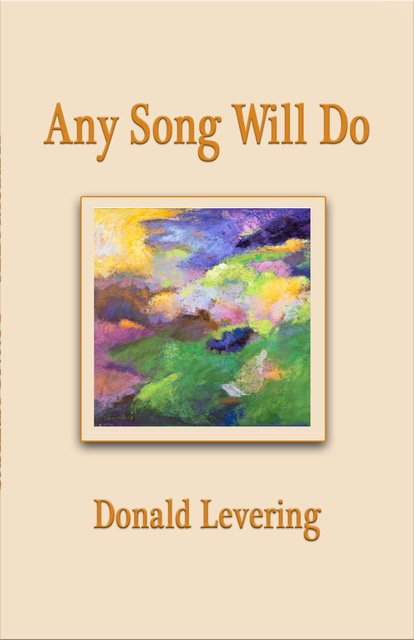Rendering the Sublime:Lise Goett and Mark Wunderlich Feb 1, 2025 WAITLIST: email jules@poetryplayhouse.com
In-person at Jules’ Poetry Playhouse in beautiful Placitas, New Mexico.
Saturday, February 1, 2025
10 am - 3 pm
TO BE ON THE WAITLIST, PLEASE EMAIL JULES@POETRYPLAYHOUSE.COM with your name, email, phone and you will be contacted IF a spot opens up. Thanks.
Visiting poets Lise Goett (Taos) and Mark Wunderlich (New York) collaborate for this one-day poetry workshop.
What is the sublime? How do we render it? The sublime in literature refers to the use of language, silence, and description to a degree that exceeds the ordinary. Often called “the unsayable” or “the ineffable,” it often contains a taste of terror or awe in it. Mark Wunderlich, executive director of the Writing Seminars at Bennington and Rilke scholar, will discuss examples plucked from the works of R. M. Rilke. Lise Goett will speak about stalking the sublime in the liminal spaces where it resides by what she calls “squeezing the silence,” employing myth, luminous detail, chime, and repetition with examples culled from the work of Brigit Pegeen Kelly, W. S. Merwin, Stevens, Sappho and others.
Rendering the Sublime: Poem assignment to bring to workshop
"Anagoge," sometimes spelled "anagogy," is a Greek word suggesting a climb or an ascent upwards. The anagogical is a method of mystical or spiritual interpretation of statements or events, especially in spiritual exegesis, that detects allusions to the afterlife. Anagogy and lightness are key ingredients of rendering the sublime.
In Rainer Maria Rilke's great masterpiece--the ten-poem cycle of the Duino Elegies--the poet takes on a voice one can describe as "posthumous." In these remarkable poems, the speaker seems to be speaking to the world of the living as if he has returned from death to help those of the living prepare for eternity by drawing attention to that which is eternal. The voice reassures, cajoles, comments, even instructs, and does all this from a place of knowledge of a spiritual reality that is all around us, but which might be unseen by the uninitiated.
In this exercise, we would like you to "write back" to the world of the living as if you were no longer alive. This stance, the "posthumous voice" referred to above, has been used by numerous poets over the years. What would you want to tell the living about the experience of being dead? What should they know? What might you learn? Write a poem in which you assume this point of view, and let us see what you arrive at and what surprises you.
Below are several examples of poems that do this, which you can see by following the links provided.
Dickinson, "Because I could not stop for death"
MacLeish, "Epistle To Be Left In the Earth
In-person at Jules’ Poetry Playhouse in beautiful Placitas, New Mexico.
Saturday, February 1, 2025
10 am - 3 pm
TO BE ON THE WAITLIST, PLEASE EMAIL JULES@POETRYPLAYHOUSE.COM with your name, email, phone and you will be contacted IF a spot opens up. Thanks.
Visiting poets Lise Goett (Taos) and Mark Wunderlich (New York) collaborate for this one-day poetry workshop.
What is the sublime? How do we render it? The sublime in literature refers to the use of language, silence, and description to a degree that exceeds the ordinary. Often called “the unsayable” or “the ineffable,” it often contains a taste of terror or awe in it. Mark Wunderlich, executive director of the Writing Seminars at Bennington and Rilke scholar, will discuss examples plucked from the works of R. M. Rilke. Lise Goett will speak about stalking the sublime in the liminal spaces where it resides by what she calls “squeezing the silence,” employing myth, luminous detail, chime, and repetition with examples culled from the work of Brigit Pegeen Kelly, W. S. Merwin, Stevens, Sappho and others.
Rendering the Sublime: Poem assignment to bring to workshop
"Anagoge," sometimes spelled "anagogy," is a Greek word suggesting a climb or an ascent upwards. The anagogical is a method of mystical or spiritual interpretation of statements or events, especially in spiritual exegesis, that detects allusions to the afterlife. Anagogy and lightness are key ingredients of rendering the sublime.
In Rainer Maria Rilke's great masterpiece--the ten-poem cycle of the Duino Elegies--the poet takes on a voice one can describe as "posthumous." In these remarkable poems, the speaker seems to be speaking to the world of the living as if he has returned from death to help those of the living prepare for eternity by drawing attention to that which is eternal. The voice reassures, cajoles, comments, even instructs, and does all this from a place of knowledge of a spiritual reality that is all around us, but which might be unseen by the uninitiated.
In this exercise, we would like you to "write back" to the world of the living as if you were no longer alive. This stance, the "posthumous voice" referred to above, has been used by numerous poets over the years. What would you want to tell the living about the experience of being dead? What should they know? What might you learn? Write a poem in which you assume this point of view, and let us see what you arrive at and what surprises you.
Below are several examples of poems that do this, which you can see by following the links provided.
Dickinson, "Because I could not stop for death"
MacLeish, "Epistle To Be Left In the Earth
In-person at Jules’ Poetry Playhouse in beautiful Placitas, New Mexico.
Saturday, February 1, 2025
10 am - 3 pm
TO BE ON THE WAITLIST, PLEASE EMAIL JULES@POETRYPLAYHOUSE.COM with your name, email, phone and you will be contacted IF a spot opens up. Thanks.
Visiting poets Lise Goett (Taos) and Mark Wunderlich (New York) collaborate for this one-day poetry workshop.
What is the sublime? How do we render it? The sublime in literature refers to the use of language, silence, and description to a degree that exceeds the ordinary. Often called “the unsayable” or “the ineffable,” it often contains a taste of terror or awe in it. Mark Wunderlich, executive director of the Writing Seminars at Bennington and Rilke scholar, will discuss examples plucked from the works of R. M. Rilke. Lise Goett will speak about stalking the sublime in the liminal spaces where it resides by what she calls “squeezing the silence,” employing myth, luminous detail, chime, and repetition with examples culled from the work of Brigit Pegeen Kelly, W. S. Merwin, Stevens, Sappho and others.
Rendering the Sublime: Poem assignment to bring to workshop
"Anagoge," sometimes spelled "anagogy," is a Greek word suggesting a climb or an ascent upwards. The anagogical is a method of mystical or spiritual interpretation of statements or events, especially in spiritual exegesis, that detects allusions to the afterlife. Anagogy and lightness are key ingredients of rendering the sublime.
In Rainer Maria Rilke's great masterpiece--the ten-poem cycle of the Duino Elegies--the poet takes on a voice one can describe as "posthumous." In these remarkable poems, the speaker seems to be speaking to the world of the living as if he has returned from death to help those of the living prepare for eternity by drawing attention to that which is eternal. The voice reassures, cajoles, comments, even instructs, and does all this from a place of knowledge of a spiritual reality that is all around us, but which might be unseen by the uninitiated.
In this exercise, we would like you to "write back" to the world of the living as if you were no longer alive. This stance, the "posthumous voice" referred to above, has been used by numerous poets over the years. What would you want to tell the living about the experience of being dead? What should they know? What might you learn? Write a poem in which you assume this point of view, and let us see what you arrive at and what surprises you.
Below are several examples of poems that do this, which you can see by following the links provided.
Dickinson, "Because I could not stop for death"
MacLeish, "Epistle To Be Left In the Earth
Class limit 10 students.
Lunch break at noon. Bring your own lunch if desired. Plentiful snacks and beverages provided (coffee, tea, water). Ample time to explore the grounds of Jules’ Poetry Playhouse and walk the labyrinth. Nearby grocery and Placitas pizza if desired for lunch options.
Bring writing materials, free wi-fi if needed.
Hosted by Jules Nyquist and John Roche.
Author books will be for sale, along with Poetry Playhouse Publications books and art.
Directions and contact info sent with registration. Questions? Email jules@poetryplayhouse.com.
Your instructors:
Lise Goett’s work has garnered numerous prizes, including the 2012 winner of the Robert H. Winner Memorial Award in Poetry from the Poetry Society of America, The Paris Review Discovery Award, the Pen Southwest Book Award in Poetry, and the Barnard New Women Poets Prize for her first collection, Waiting for the Paraclete (Beacon Press, 2002) and more recently, The Palette Journal Spotlight Prize and a grant from New Mexico Writers for The Radiant. Her poetry has appeared in numerous journals, including the Paris Review, Ploughshares, Image, Mandorla, Lana Turner Journal and the Antioch Review. She holds a B.A. in English Literature from the University of Iowa, an M.A. in English Literature and Creative Writing from N.Y.U., and an M.F.A. from the Writing Division of Columbia University.
Mark Wunderlich is the author of four books of poems, the most recent of which is God of Nothingness, published by Graywolf Press. His other books include The Earth Avails, which received the Rilke Prize, Voluntary Servitude, and The Anchorage, which received the Lambda Literary Award. He is the recipient of fellowships from the Guggenheim Foundation, Civitella Ranieri Foundation, the NEA, the Amy Lowell Trust, and the Wallace Stegner Fellowship Program at Stanford University. He has published poems in The New Yorker, The New York Times Magazine, The Nation, The New Republic, and elsewhere, and his work has been widely anthologized. He is Executive Director of the Bennington Writing Seminars graduate writing program in Vermont and lives in New York’s Hudson Valley. Author photo credit Beowulf Sheehan.















